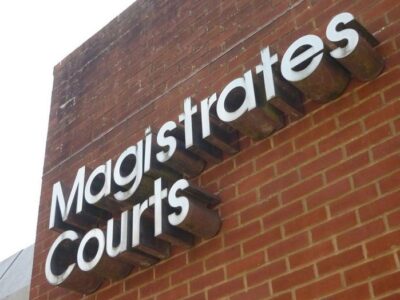The State has insisted on the forfeiture of over 2,000 unmarked logs of Mukwa, Mopane, and Mupapa trees found in the possession of Chinese investor Wang Xuexin, arguing that the timber was illegal due to the absence of registration and hammer marks.
Wang has opposed the application, stating the logs were lawfully acquired through licensed timber dealers and supported by documentation, including ferrying permits, merchant agreements, conveyancing licenses, and receipts.
He also submitted a bank statement from FNB Zambia, indicating that the business was funded by capital from the Chinese government.
“I did not use proceeds of crime in setting up this company or acquiring the property,” Wang submitted in filings before the Economic and Financial Crimes Court.
Read more: DPP seeks forfeiture of 62 Mopane logs, truck from convicted Chinese national, associates
However, in an affidavit dated April 7, 2025, Nixon Shakantu, an investigations officer with the Department of National Parks and Wildlife in Chirundu, disputed Wang’s position.
He asserted that the logs are “tainted property” and should be forfeited.
Shakantu explained that logs must bear hammer marks—unique identifiers akin to national registration numbers—which allow for traceability and legal verification.
“Logs, like people, must be identifiable,” he said. “Without hammer marks, it is impossible to verify their origin or legitimacy. Their mere presence on the premises without proper markings is illegal.”
He further argued that all equipment and vehicles used in the handling of the timber—including forklifts, wood misers, trucks, and trailers—should also be forfeited as instruments of illegal activity.
In its skeleton arguments, the State cited violations of Sections 89, 92, and 99 of the Forest Act No. 4 of 2015.
It alleged that the unmarked logs were stored alongside legally marked timber at Plot No. 185609, the operating site of Sena Plus Investments Limited.
“The interested party failed to produce a lease or tenancy agreement for the premises, let alone paperwork authenticating the unmarked logs,” the State submitted.
The National Prosecution Authority (NPA) has argued that on the balance of probabilities, the property—including the timber, machinery, and business premises—was tainted and should be forfeited to the State in accordance with the Forfeiture of Proceeds of Crime Act (FPOCA).
WARNING! All rights reserved. This material, and other digital content on this website, may not be reproduced, published, broadcast, rewritten or redistributed in whole or in part without prior express permission from ZAMBIA MONITOR.












Comments